There was no real Marie Buchanon in Underground Railroad hero Harriet Tubman's life. But Kasi Lemmons, director of Harriet, says that when biographer Kate Clifford Larson saw the script that includes the story of a Black woman who was born free in Philadelphia and offers a counter perspective to Tubman's harrowing life escaping slavery, Larson told Lemmons, "That's Marie Buchanon." And Lemmons says the scenes between Cynthia Erivo's Harriet Tubman and Janelle Monae's Marie Buchanon, which illustrate two very different Black female experiences of the era, are some of her favorite scenes in the film.
"How fortunate was I to have these incredible women to work with? It was just so powerful to have them working with me," Lemmons tells The Advocate about casting Tony winner Erivo (The Color Purple) and Grammy winner and actress Monae (Hidden Figures, Moonlight).
"Cynthia was a perfect relationship for me, in terms of how she brought Harriet to life," says Lemmons, who is best known for directing the 1997 film Eve's Bayou.
The casting of the British Erivo to play the role of one of America's all-time greatest heroes was met with controversy, especially considering she had previously tweeted negatively about Black Americans. But for Lemmons, Erivo's peerless artistry helped bring the character of Harriet into focus.
"Harriet had become very vivid to me in my research, and then Cynthia brought her even closer to me, and it brought Cynthia and I close together. We were doing something together. We had an incredible synergy and that was wonderful," Lemmons says.
The film, which outperformed box office expectations when it opened last week, begins circa 1849 when it comes to light that Tubman, then Minty, and her mother and siblings are told they should have been freed from the Maryland plantation of Edward Brodess more than 10 years earlier. The revelation and Brodess's implacability around letting them go is the inciting incident that sets Harriet on her spiritual path to freedom, which she will tread dozens of times to return and save others.
It's at the close of Harriet's first solo journey to freedom -- to Philadelphia -- that she meets Monae's Marie. Upon arriving at that crossroads, she seeks out abolitionist William Still (Hamilton's Leslie Odom Jr.), who sends her to stay at Marie's boarding house. Still was a real man and a pioneer in helping bring slaves to freedom, but it wasn't until Larson, author of Bound for the Promised Land: Harriet Tubman: An American Hero, came aboard the project that Lemmons discovered the woman who runs the boarding house where Harriet takes refuge in the script she worked on with Gregory Allen Howard was reminiscent of a real woman named Marie Buchanon.
"When Kate Clifford Larson came on as a consultant and I had her read the script, she said, 'That's Marie Buchanon. You've got to call her Marie Buchanon, because she was a real person. She was a real friend of William Still and she no doubt knew the area. She was in Philadelphia,'" Lemmons says. "So I named her Marie Buchanon. So she's part of a real person."
The chasm and similarities between Harriet's experiences and a woman like Marie's captured Lemmons's imagination. As part of her extensive research, she delved into works by women historians of Tubman, including Larson, Catherine Clinton, and Beverly Lowry.
"There had been a Marie in the original script, written by Gregory Allen Howard, and I wrote a version of her. I kind of dove deep into their relationship because I felt that was when Harriet was able to have her quiet moments, and that the sisterhood between them would allow Harriet to express herself," Lemmons says.
During their initial meeting, after which Harriet has fled her home and loved ones and traveled more than 100 miles on foot to safety with the villainous son of the plantation owner (Joe Alwyn) on her trail and no food, lodging, or bathtubs to be had, Marie carelessly comments on Harriet's stench. But Harriet stands up for herself in the face of the smartly dressed Marie, who's not faced the same kinds of horrors Harriet has.
"In some ways my favorite scene is the scene where Harriet says, 'You've never had the stink of fear,' and Marie apologizes. She says, 'You're right, Harriet,'" Lemmons says. "It's just such a great moment and you really feel love for this character."
Marie, infused with Monae's innate warmth in just about any role she inhabits, becomes a friend, a sister, a protector, and a teacher to Harriet -- who would become the most prolific conductor on the Underground Railroad, making 19 trips into enemy territory and escorting more than 300 slaves to freedom.
Scenes between the women range from the tenderness of Marie washing Harriet's back in a tub to empowerment in teaching her how to wield a firearm and scenes of great violence and sorrow in which Marie proves to be the ultimate cover and friend to Harriet and the people she saves.
"The scenes in the bathroom were done very quickly; mostly it's one or two takes, and one or two shots, and they were just so wonderful," Lemmons says of the shorthand she, Erivo, and Monae shared.
Tubman has become a nearly mythical icon of freedom with mystical sensibilities that Lemmons leans into in terms of her visions and her relationship with God. But Lemmons and Erivo also tap into Harriet's intrinsic vulnerability as a woman to be fueled and felled by the love for her family, her husband, and the people she shepherds to freedom.
"As a feminist and as a woman, as a Black woman, [it was exciting] to present her in all of her glory, but also her real womanhood," Lemmons says.
"I was very inspired by the fact that she was heartbroken and felt loss, and was motivated by love and by a strong sense of family. These are very feminine things; these are feminist characteristics that we women have," Lemmons adds. "Because there's a superhero aspect to her story that I enjoy. I think that heroism in the abstract can lose us a little bit. When you realize that she was motivated by love for her family, love for her husband and her brothers and sisters, that is much more relatable."
Harriet is currently in theaters.
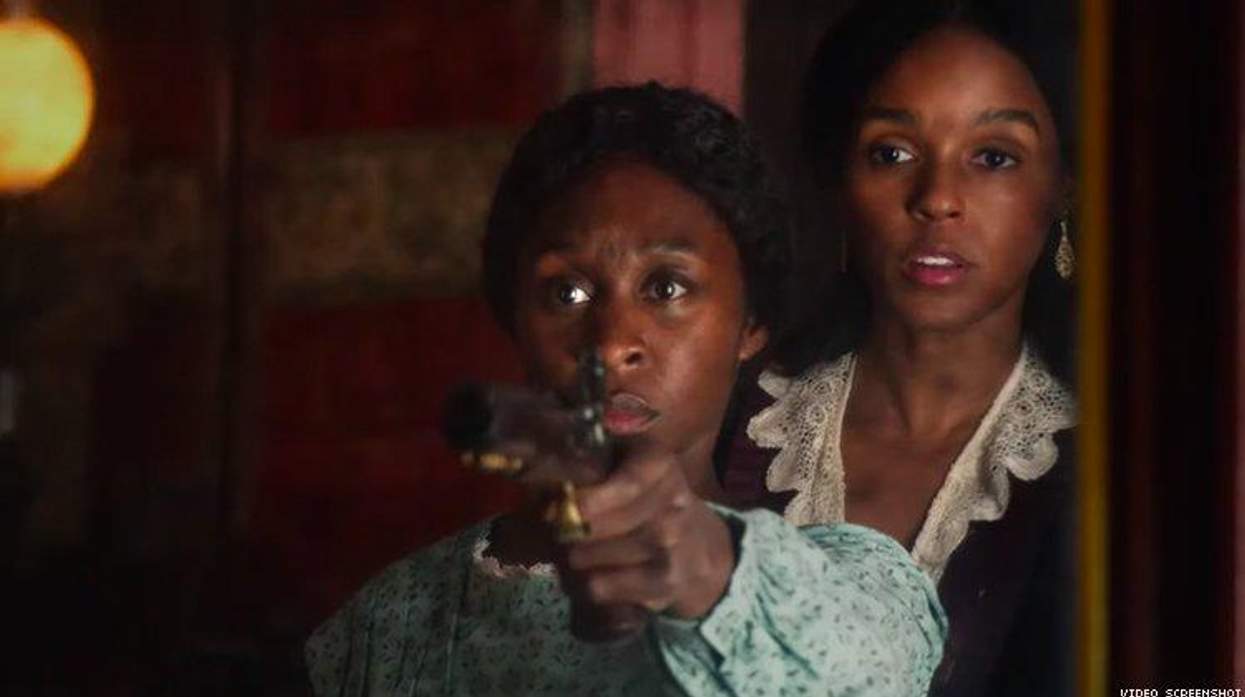

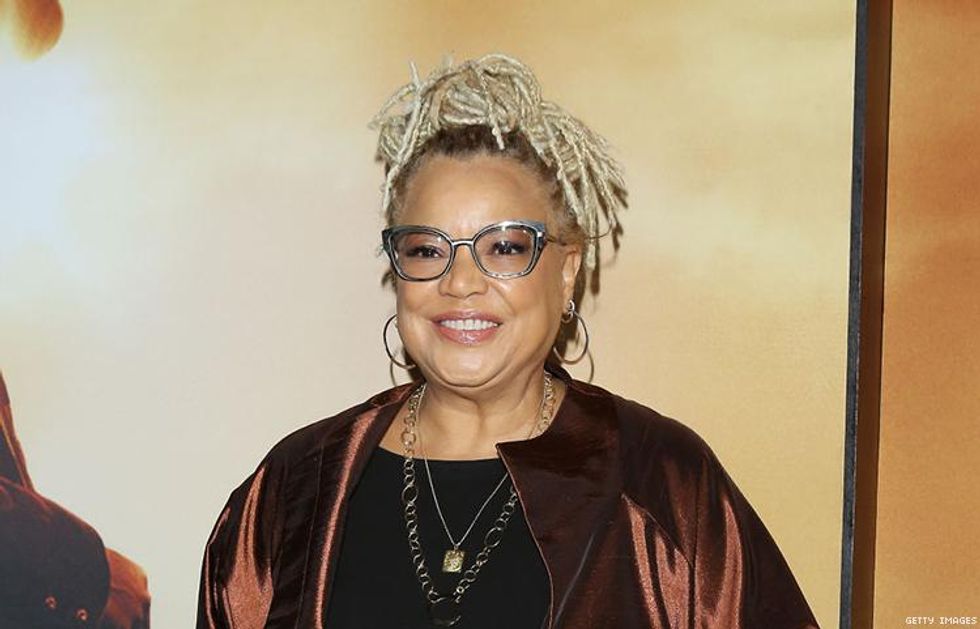
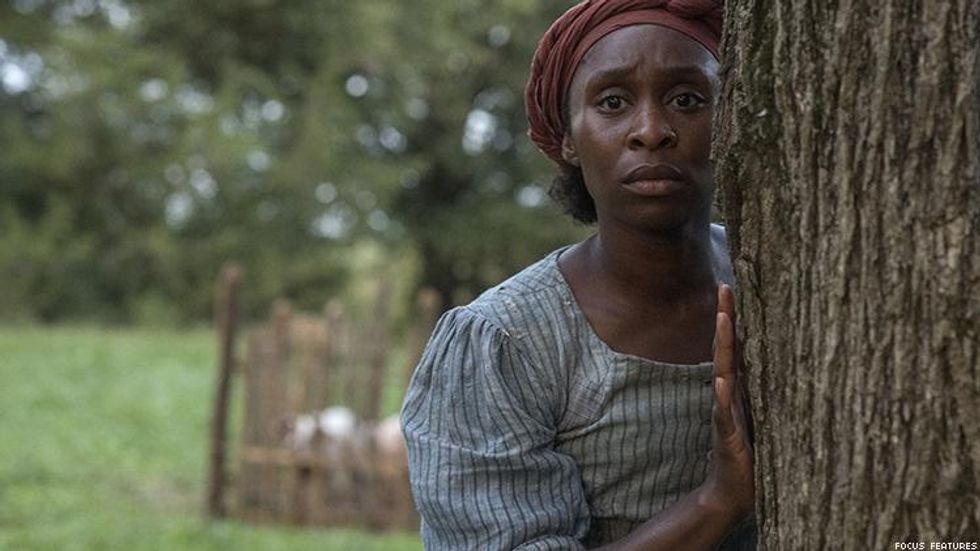
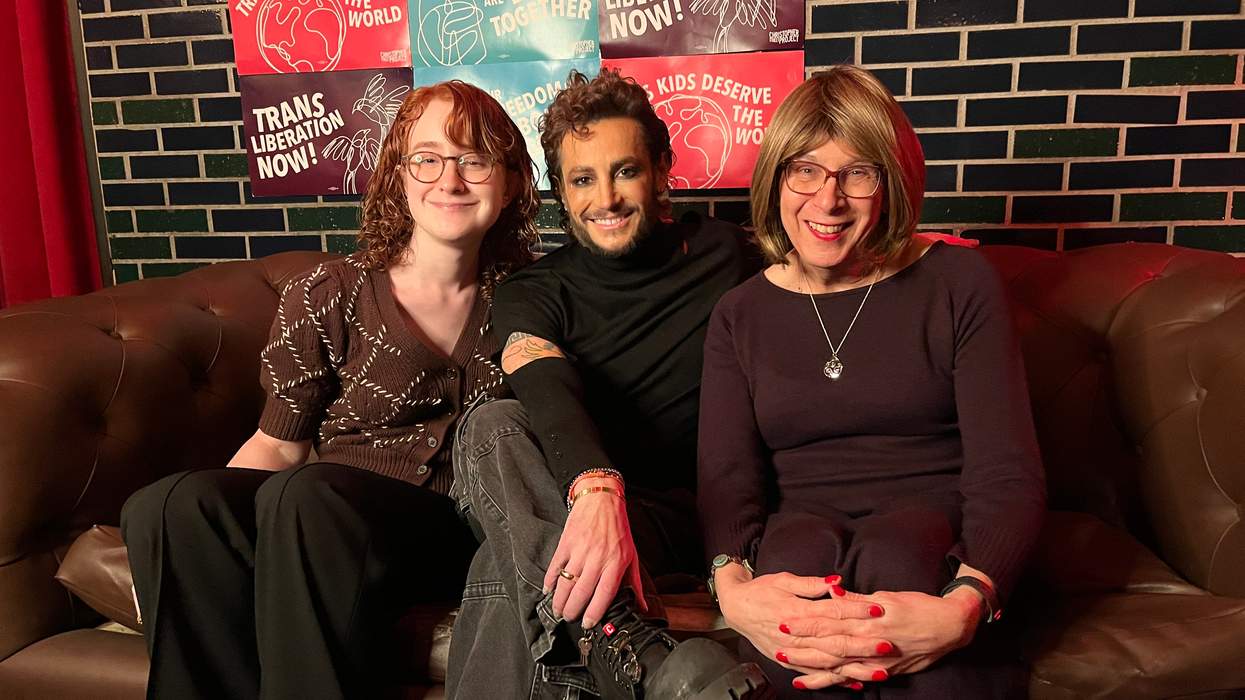






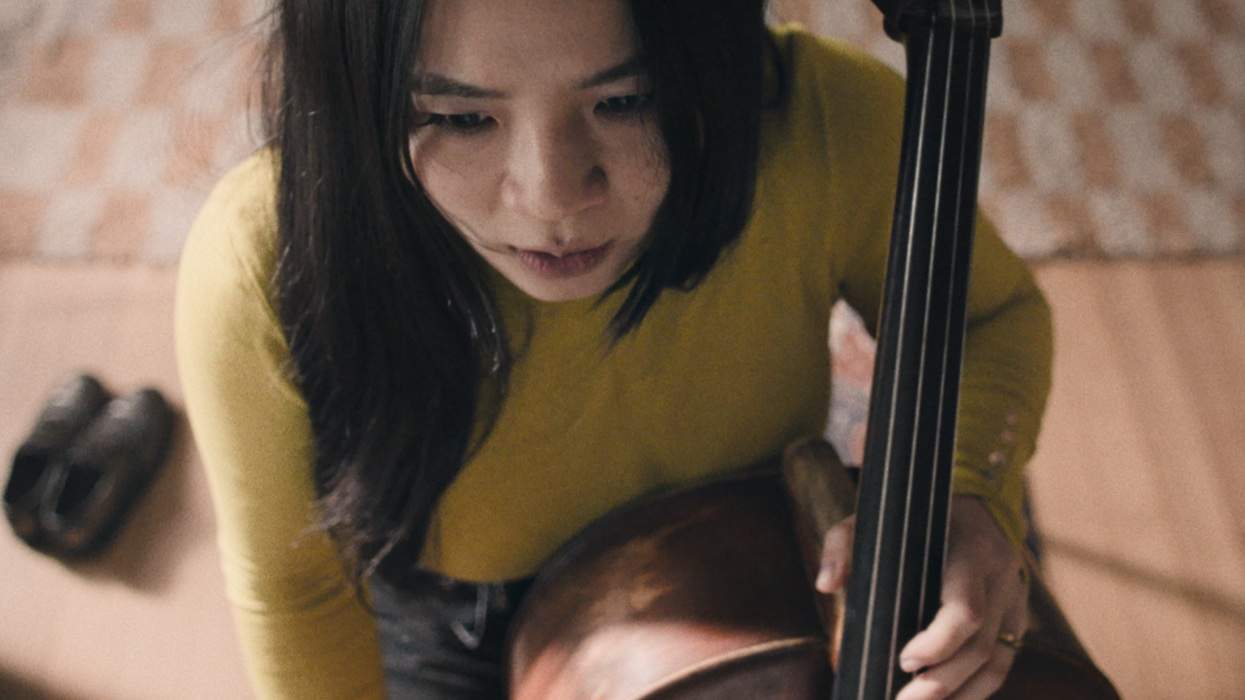






Charlie Kirk DID say stoning gay people was the 'perfect law' — and these other heinous quotes
These are some of his worst comments about LGBTQ+ people made by Charlie Kirk.